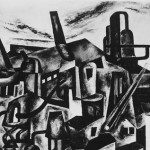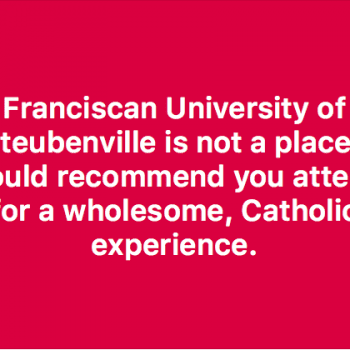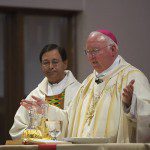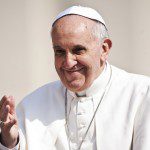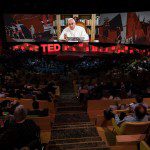Political comedians readily suggest that Francis is a Marxist because of his critique, which is actually consistent with the Catholic wisdom tradition, of the prevailing economic order. In the past, Cardinal Dolan was quick to insist that Francis wouldn’t advocate socialism or denounce US capitalism-as if one could make a distinction between the different capitalisms in the world-after wealthy donors in the New York Archdiocese were made uncomfortable by parts of Evangelii Gaudium (Francis’ first Apostolic Exhortation). In fact, the same Apostolic Exhortation led to defenses of US capitalism by Samuel Gregg, Robert Sirico, and Jay Richards – ‘Francis refers to cronyism, not our capitalism’, they want us to foolishly believe.
While mentioning capitalism by name could be imprudent for Francis, any reader could make the following conclusion not only after reading Laudato, but after familiarizing ourselves with moral theology: the church invites us to go beyond capitalism. Not merely crony capitalism, nor mercantile capitalism, nor industrial capitalism, nor monopolistic capitalism, nor any other capitalism that could in reality be distinguished from US capitalism. Capitalism has got to go.
While not mentioning capitalism by name, Francis does mention Nazism, communism, and totalitarianism, only after mentioning the United States (not by name), when considering the destruction of life in systems that lust for power and control. A major concern for Francis is therefore perfectly modeled in the US social structure, capitalism included.
It would be challenging to come to the conclusion that capitalism is no longer tolerable simply with the above reference – and without seeing the word capitalismanywhere in the encyclical. To be sure, “market” is used several times, often negatively – but not capitalism. Yet, being reminded by Francis that everything is connected can aid us in realizing the imperative for a reality beyond capitalism.
One of the few non-Bishops or non-(canonized-)saints cited by Francis is the Italian-born priest, Romano Guardini (LS, 105-108), his influential The End of the Modern World to be specific (which ironically features a foreword from Neo-Conserative stalwart Richard John Neuhaus). Guardini’s thought, which was influential for early-20th century Eastern European Christian socialists, has a serious role in Francis’ discussion on consumerism, globalization, and the technocratic paradigm. This conversation takes place in the third chapter of Laudato, titled ‘The Human Roots of the Ecological Crisis’. The ecological crisis has, as part of its cause, the marriage of technological power and consumerism.


